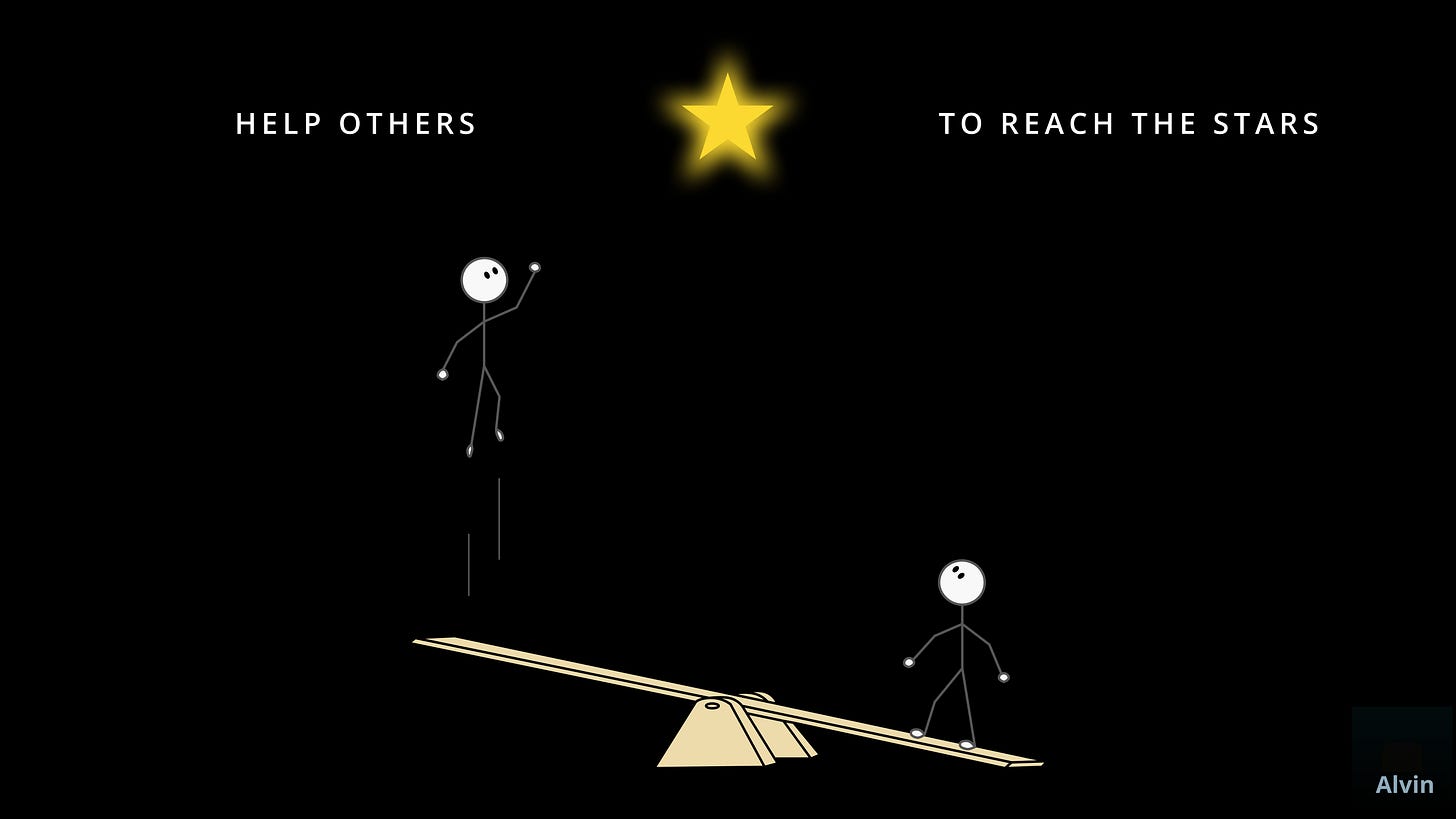Dive 60: Writing for others IS writing for yourself
Hey, it’s Alvin!
One of the cool things I’ve gotten to do in the last 10+ years is make software for half a dozen different industries from banking to healthcare to retail to telecommunications and more. You can learn a lot about the world this way. But it’s not without its challenges.
Because every time I joined a new team, I had to learn new:
Languages
Tools
Tech stacks
Processes
People
Styles
Conventions
… and so much more. It’s like travelling and adapting to the customs of a place you’ve never been to before. It’s exciting. But also challenging. Especially if you haven’t done it much before.
It’s why solo developers often have a hard time joining a team for the first time. Because solo devs are not used to adapting to other people’s coding conventions. Or any conventions at all. In which case, no one else can understand their code but them. Sometimes, not even them.
It takes effort to adapt to a new way of doing things. So, we’re reluctant to adapt unless we absolutely have to. Sometimes, it’s easy to feel like, “ok, I’ll do it for your sake. But I don’t really want to.” Because we feel like we’re “giving up” something with no (expectation of) reciprocation. It FEELS like a sacrifice.
But that feeling of sacrifice is often just an illusion. A trick of emotions. Consider this:
If you store money in one place, you can’t use it elsewhere. Economists call this an “opportunity cost.” In that moment when you put your money away, it can feel like you’re giving up your money. Money you could otherwise spend. But if you placed your money where it can grow over time, then there’s a long-term benefit. Then, we don’t call it a “cost.” We call it an “investment.”
Likewise, when we dedicate ourselves to helping others, it can feel like a cost to us initially. But what I noticed over the years is that it’s almost always an investment.
It’s an investment in yourself.
For example, coding to a new software team’s conventions takes effort. And yes, when I code to conventions, it’s easier to find and fix bugs in my teammates’ code. For sure. But it’s also easier to follow my own code. This is super important because if you’re a software developer, you will revisit your own code often to confirm how things work and to make sure things are still working as intended.
But as you can see, when you code to make other people’s lives easier, you also make your OWN life easier.
When you help another person, your own actions have a positive effect on you.
Of course, this isn’t just true in the world of software…
In the writing world…
When I started my newsletter writing journey, I separated “writing for myself” from “writing for others.”
My friend Chris Wong recently wrote a post that explains the distinction. He starts by “writing for himself,” which means focusing on one idea by removing extra stuff. Then, he moves onto “writing for others,” which means adding “stories, metaphors, and analogies” to engage the reader.
I used to see writing the same way. But what I’ve since realized is that when you write for others, you’re also writing for yourself. Because if you think about it, you are also a reader of your writing. Especially if you self-edit.
And if you write meaningful things, you should want to re-read it, right? Not to stroke your ego. But to remind yourself of what matters most to you. And if you write in a way that entertains others, then your writing is more likely to entertain you too. Then, you’ll enjoy re-reading what you wrote. So, when you write for others, you’re also writing for yourself.
There’s one other way writing for others benefits you.
To explain a tough topic to others, you need to break it down to make it easier to understand. Like what I’m doing now. That takes analysis (or “analytical thinking”).
But you also need stories, metaphors and analogies. Like the visuals at the top of every edition of this newsletter. As Chris mentioned, they keep readers engaged. But they also help simplify a broad topic memorably if they’re chosen and expressed well. Developing a story, metaphor, or analogy to simplify a complex idea requires synthesis.
Analysis and synthesis both take effort. Doing both can be hard because analysis and synthesis are opposites. You can only do both by understanding a topic to a certain depth. Writing is thinking. You analyze and synthesize to engage your readers and help your readers understand something. But you, as the writer, reap the same benefits. That’s why…
When you’re writing for others, you’re also writing for yourself.
The distinction is less: “writing for yourself,” vs. “writing for others.”
The distinction is more: “writing for yourself,” vs. “writing for others AND yourself.”
Because when you help another person, your own actions have a positive effect on you.
I believe this is true in all aspects of life.
Giving to others isn’t a sacrifice as much as it is an investment in yourself. Because the act of giving has a positive effect on you. Even if it’s not immediate and obvious. It exists. But because it’s often subtle, it’s easy to overlook what you gain from the act of giving.
You lift yourself by lifting others.
Reply to belowthesurfacetop@gmail.com if you have questions or comments. I’d love the hear from you.
Thank you for reading. Lift others. And I’ll see you in the next one.



Great distinction! When you write for other people it also helps you see other perspectives.
enjoyed reading this. I often want to write out but haven't been doing it consistently. I will give it another try. 🙂